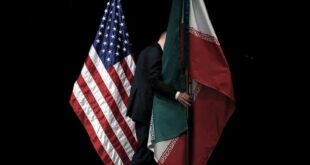 TEHRAN (FNA)- Experts say a free trade agreement between the Persian Gulf Cooperation Council countries and Iran would benefit both sides as it would open PGCC markets for Iranian products and vice versa.
TEHRAN (FNA)- Experts say a free trade agreement between the Persian Gulf Cooperation Council countries and Iran would benefit both sides as it would open PGCC markets for Iranian products and vice versa.
Persian Gulf states have decided to accept an offer from Tehran to begin talks on a free trade agreement (FTA) that will add Iran to the list of many countries negotiating with the region for such a deal, a Qatari official was quoted as saying yesterday.
Finance and Economy undersecretaries from the six-nation Persian Gulf Cooperation Council approved the plan at talks in Riyadh, Saudi Arabia, on Tuesday.
The two-day meeting covered proposals announced by Iranian President Mahmoud Ahmadinejad at the PGCC annual summit in Doha last year to open FTA negotiations with the 27-year-old Persian Gulf alliance.
“We discussed the Iranian President’s proposals to expand PGCC-Iran cooperation,” said Khalaf Al Manai, Qatari Finance Ministry Undersecretary. “The undersecretaries agreed on starting the first official round of negotiations on an FTA with Iran,” he told the Saudi newspaper Aleqtisadiah.
Manai did not specify a date for the talks, which have been sought by Iran for more than a decade to establish strong trade, economic, political links with its Persian Gulf Arab neighbors.
Iran already enjoys good commercial links with the PGCC.
Experts said an FTA between the PGCC and Iran would benefit both sides as it would open Persian Gulf markets for Iranian products and give PGCC members bigger access to a massive market in Iran and nearby countries.
Iran is already the largest market for UAE’s non-oil exports and re-exports, which accounted for the bulk of their two-way trade of more than $12 billion (Dh44bln) last year. According to the Iranian Business Council in Dubai, more than 10,000 Iranian companies operate in the UAE.
Iran, which controls the world’s second largest oil and gas wealth, is an OPEC member along with four PGCC states – UAE, Saudi Arabia, Kuwait and Qatar. The PGCC, which also groups Bahrain and Oman, has been locked in FTA negotiations with several countries and groups, including the European Union, Japan, China, India and the United States.
 Eurasia Press & News
Eurasia Press & News


